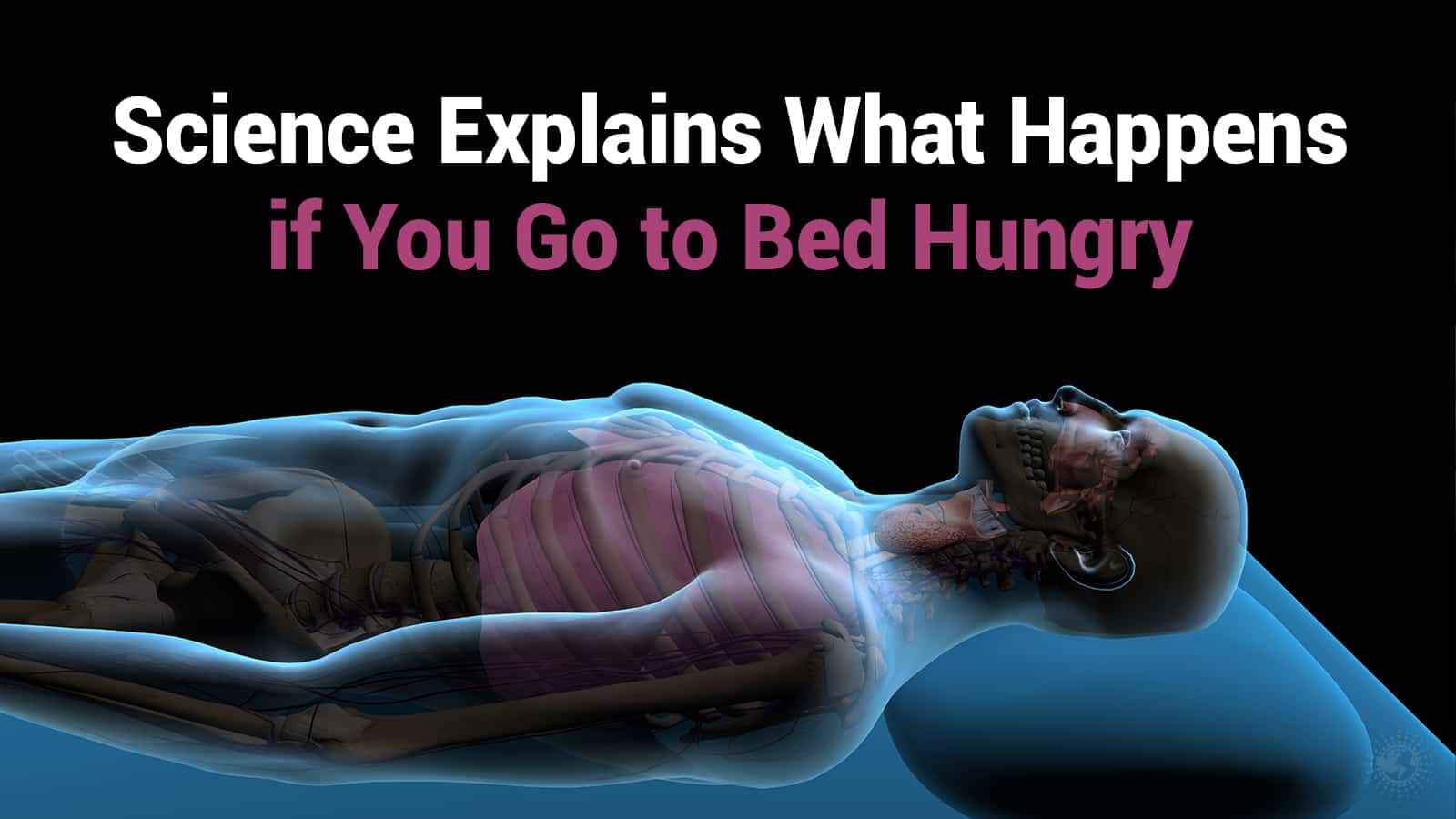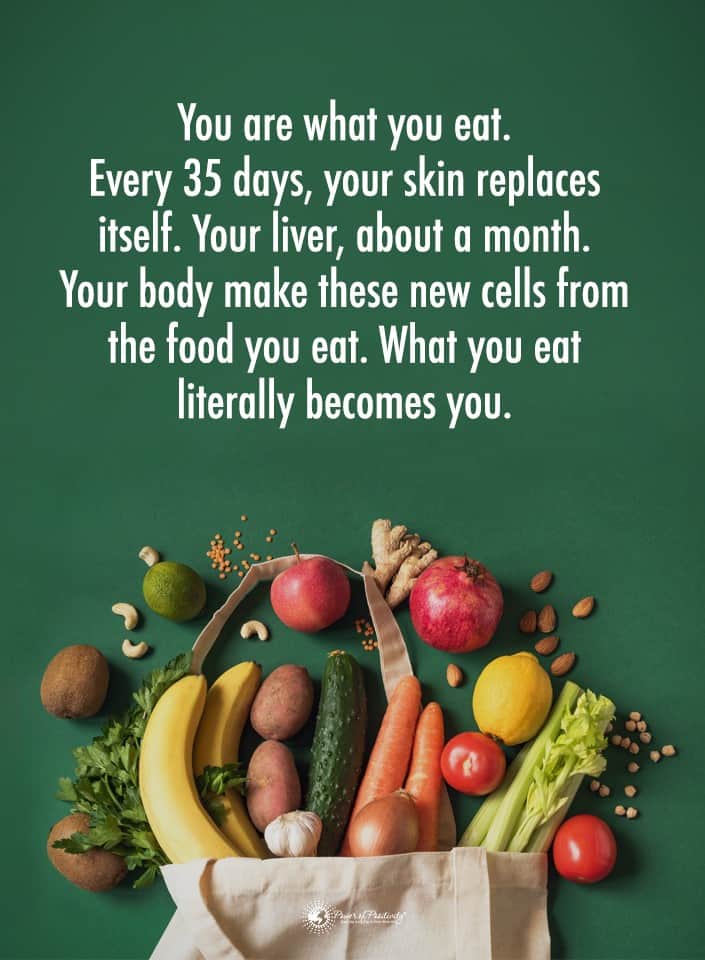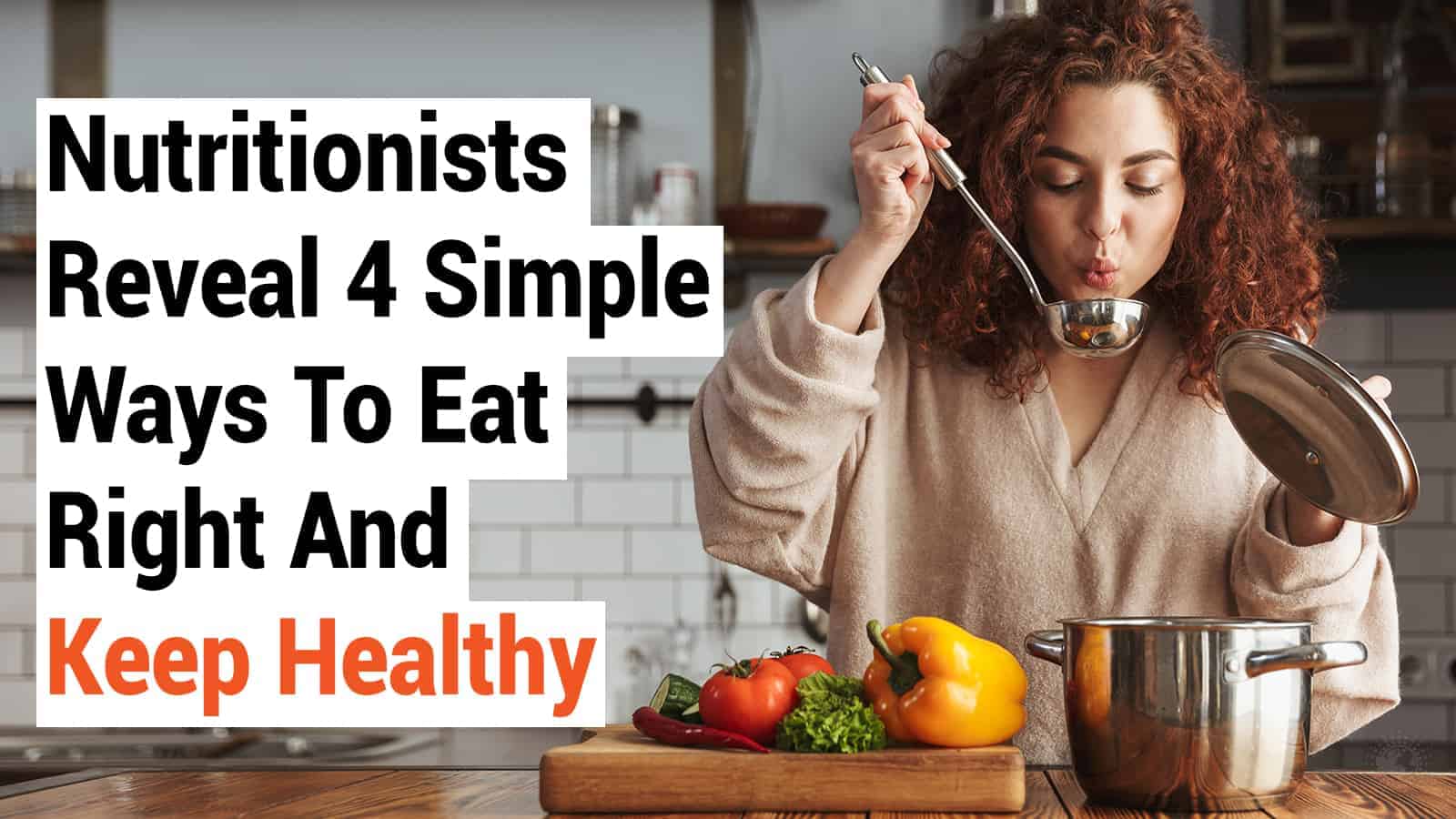The battle to eat right and stay healthy is a long and arduous one. Many people struggle to achieve their goal weights and lifestyles sustainably and healthily. There’s a lot of conflicting information out there about how best to do that, so it can be confusing and may even feel unattainable.
A lot of the issues you may have with the concept of eating right stem from unrealistic expectations. The world is continually forcing us to believe that we need to be achieving supermodel status by diet alone – but that’s not how it works!
What’s the right answer to this confusion? What do you have to do to stay healthy for years to come with a good, balanced diet and positive habits? Is positive thinking really all you need? Here’s how nutritionists reveal 4 simple ways to eat right and remain healthy.
1. Beware Diet Gimmicks
Diet culture has swept our world and covered it with generic recommendations that are marketed to sound like they’d work for everyone. They won’t, and you should do what you can not to fall for them.
Licensed and registered dietitian Lindsay Birchfield, also an activist for health and body issues, explains that human beings’ diversity means there’s no such thing as a one-size-fits-all diet. Bodies and nutrition are so incredibly complex that there’s no way that a diet exists that is good for even a majority of human beings. It’s simply not scientific!
The same goes for concepts like diet foods, which are also created for marketability, not accuracy.
 Look out for foods with labels like these:
Look out for foods with labels like these:
- Reduced-Fat
- Low-Fat
- Low Calorie
These labels sound great, but the truth is that most diet foods need to go a long way to make up for those missing components. Texture and flavor are lost when you remove fat and other so-called “unhealthy” ingredients from normal foods, so diet foods have to make themselves palatable with all sorts of additives.
The result? Studies show that these diet foods often have more added sugars or even more calories! Basically, if you really want to eat a healthy diet, go for whole foods instead of fad “diet” products.
While you’re at it, here are more diet tips that you shouldn’t be following:
· Eating Superfoods
Yes, you can drop expensive “superfood” products. Though they are certainly healthy, regularly eating them can be unsustainable in the long run due to cost and availability. To truly stay healthy, licensed, and registered dietitian Marisa Moore recommends simply adding organic, fresh vegetables to your meals instead.
· Finding Replacements For All Favorites
Yes, you should find alternatives to things like fast food burgers and deep-fried foods. But not all of your favorite treats need to be replaced. In fact, Shana Minei Spence, a registered dietician and Certified Dietitian-Nutritionist, says it can actually be wiser to permit yourself to indulge in the foods you’re craving every once in a while. As long as you’re eating them in moderation, there’s nothing wrong with a cupcake or some chips once a week.
· Using Tracking Apps
It’s easy to become overly reliant on applications that track food consumption and exercise. But if all you’re trying to do is stay healthy, this is counterproductive. According to licensed and registered dietician Cara Harbstreet, this only makes you less and less in touch with your body as you fall into a false sense of security. Deleting your tracking apps lets you get back to your roots and be one with your body again.
2. Add Certain Healthy Nutrients To Your Diet
The nutrients you put into your body are incredibly important, which goes without saying when you’re trying to eat right. But there are countless different options for nutrients and food components that sound healthy and good for you. Which ones should you focus on? Let’s start with these!
· Whole Grains
It’s relatively easy to make the switch from refined or white grains to whole or brown grains. While refined carbohydrates have links to all sorts of increased disease risks, according to studies, whole grains are packed with vitamins, minerals, and more that make them healthier in the long run.
· Protein
Protein helps to stabilize satiety, meaning it can make you feel full, and increasing protein intake has been shown to help people consume fewer calories daily. This is ultimately positive for weight management and reducing cravings. Also, protein’s ability to aid in muscle mass retention means it can also help you burn additional calories during the day while preventing muscle loss as you age.
· Probiotics
Probiotics are typically found in fermented foods and are very important for digestion. They help keep the gut well-balanced with a mix of healthy bacteria and a beneficial microbiome.
· Fiber
Fiber is incredibly important to your bodily health. Registered dietician and Certified Dietitian-Nutritionist Maya Feller says that fiber is responsible for creating good bacteria in the gut, helping with bowel movements and digestion. It also helps you to feel full and, according to research, can reduce the risk of certain diseases.
· Phytonutrients
Phytonutrients are plant-based compounds made of chemicals of all sorts that provide unique benefits to the body. One of the biggest examples of this is in antioxidants, which protect the body from damage from free radicals. Berries and other plant foods are a great source of phytonutrients. With so many upsides, it’s almost a crime not to eat them! They’re cardioprotective and packed with lots of components that will keep you healthy, says Feller.
 3. Make Food In A Way That Works For You
3. Make Food In A Way That Works For You
It’s easy to get caught up in meal preparation advice and lose sight of what is actually important. At the end of the day, all that matters is that you’ve made relatively healthy food and now get to eat it. So instead of stressing out over how everyone says you should do things, put on your positive thinking and make food in the way that works best for you. For example:
· Meal Prep In A Relaxed Way
If you’re meal-prepping, you’ll need to make sure your plan is reliable – but it also shouldn’t be too strict, as that will limit you and stress you out. Rebecca Scritchfield, a registered dietary nutritionist, recommends being flexible and relaxing a little on what your idea of a “good” meal prep is. Fresh vegetables, fruits, and go-to meals are really all you need!
· Eat When You’re Hungry
If your stomach starts to growl, it’s because you’re hungry, and your body needs food. That’s the end of the story! So if you feel hungry outside of normal mealtimes, it’s perfectly fine to eat. Bodies aren’t robots – they don’t follow a timer, says Spence, and so many factors go into what can make you hungry. Just eat when you feel like you need to, and you’ll be fine.
· Don’t Confine Foods To Specific Meals
You likely have an idea of what is categorized as “breakfast food,” “lunch food,” and so on. Scritchfield states that there’s no need to label foods this way. Realistically, you can eat any of those foods for any meal. Breakfast for dinner isn’t a problem when you stop restricting your food to specific times of day! This allows you to enjoy more flexibility with your meals.
4. Change How You Think Of Healthy Eating
We live in a world that focuses on diet-based “healthy eating.” It’s all about restriction and discipline. But that’s not sustainable and also not great for your psyche! Your relationship with food can become dysfunctional if you only follow what the world claims are best. Here are some areas where your perspectives might be holding you back in healthy eating:
· Calories Shouldn’t Count
Yes, you’ve been taught all your life to count your calories, but as long as you’re not eating huge pizzas every day, there’s really no point in doing this. What you should be counting are the nutrients you’re receiving from your foods, says nutritionist Rhiannon Mack. For example, 400 calories of vegetables is inherently a better option than 200 empty calories of fries.
· You Shouldn’t Cut Out Foods
People talk about restricting foods and cutting out “bad” foods all the time, but this isn’t a good idea. It increases your risk of cravings and doesn’t last. Spence says that adding ingredients to usually unhealthy meals is always a better option. For example, instead of cutting out pizza or ramen noodles from your life, start adding vegetables or protein to transform them into a better, more filling meal.
· Don’t Skip Meals
Skipping meals to make up for an unhealthy meal you had earlier is not the way to go. If you tend to forget to eat because you’re distracted or skip meals due to guilty feelings, it’s time to unlearn those habits. Registered dietician and certified intuitive eating counselor Rachael Hartley states that eating regularly is crucial to feeling energized, and if it’s overall health you want, you need to eat!
· Try Mindful Eating
How often are you distracted while having meals? Are you often on your phone, watching a show, or reading a book or newspaper while you eat? Well, that could be part of the problem! Mindful eating can help bring joy back into the act of consuming food, says certified eating disorder registered dietitian and nutrition therapist Erica Leon. This involves tuning into your senses while you eat. So put away your distractions and pay attention to the appearance, smell, texture, and taste of what you eat. Mindful eating helps you savor meals and get full faster while also improving your relationship with food!
 Final Thoughts On Some Simple Ways To Eat Right And Remain Healthy
Final Thoughts On Some Simple Ways To Eat Right And Remain Healthy
Eating right is meant to be a long-term commitment that isn’t restrictive, boring, or unpalatable. If you feel that your food options tend to be unappealing to you, or you find yourself restricting so many aspects of your diet, then there’s a good chance that things won’t work out for longer than a few months.
It sounds tough, but avoiding diet gimmicks, adding positive nutrients to food, adapting your food preparation to what works best for you, and changing some old stigma surrounding food can help you eat right and stay healthy. Keep your positive thinking and start working on your long-term dietary health today!


















